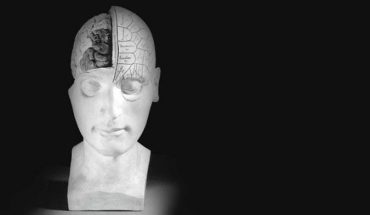One hundred and thirty years ago, Sir William Osler – probably the most celebrated doctor in modern history – gave an address to the newly minted doctors at the University of Pennsylvania Medical School.
Osler told the students that ‘in the physician or surgeon no quality takes rank with imperturbability’
‘in the physician or surgeon no quality takes rank with imperturbability’
The mental equivalent of imperturbability, for Osler, was equanimity – serenity of mind. This mental composure could be ruffled by difficult patients, overwork, and the uncertainty of medicine. Yet, if attained, it would enable the doctor ‘to rise superior to the trials of life’.
Osler observed that these two qualities should be used judiciously and not harden ‘the human heart by which we live’.
In another lecture to medical students, Osler referred to doctors as belonging to ‘the great army of quiet workers’ whose voices are not heard in the streets but who offer ‘consolation in sorrow, need, and sickness.’ The best doctor, Osler noted, is often the one of whom the public hears the least.
Nowadays, doctors are heard loud and clear by all and sundry. Social media is brimming with doctors and medical students opening their hearts, sharing their frustrations, and venting their anger.
Members of the public can read tweets from doctors who describe how they cried at work, struggled with lack of sleep, lost their temper with incompetent colleagues, and even made mistakes. Are airplane pilots equally open, I wonder?
The public perception of doctors has changed and their descent into the bustling crowds of social media is likely to have played a part. With greater openness about their vulnerabilities and fallibilities, the mystique of the medical profession is fading. The Oslerian emphasis on imperturbability, equanimity and the quiet dignity of the physician has given way to the doctor as Everyman, prone to the same weaknesses as all of us.
Doctors, who hitherto got things off their chest in the privacy of the doctor’s mess, now bellow their discontent to the world. This may be therapeutic and humanise doctors, but it risks undermining public confidence in the medical profession. A loss of confidence in doctors brings a greater inclination for patients to challenge, complain and sue. Moreover, the placebo effect borne from seeing doctors whose very presence is reassuring may be lost.
Younger doctors have grown up with social media. They tweeted as students and now tweet as doctors. Doctors tempted to share insights into their working life on social media must ask themselves whether the benefits of this candour outweigh the possible harms to their reputation and to the image of the medical profession as a whole.
- COVID-19 Intensive Care Triage Protocol - 11th April 2020
- Remedial Ethics For Clinicians - 8th December 2019
- Doctors, Status and Social Media - 6th June 2019







